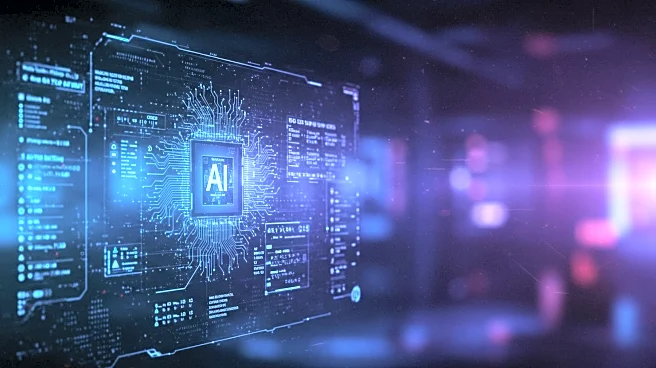What is the story about?
What's Happening?
Scott Farquhar, co-founder of Atlassian, has proposed that Australia adopt U.S.-style copyright laws to allow artificial intelligence (AI) to train on creative content without restrictions. Farquhar argues that the lack of fair use exemptions in Australian copyright law hinders investment in AI development. He suggests that AI training on creative works should be permissible unless it directly copies an artist's style. However, this perspective overlooks ongoing legal debates in the U.S. regarding the fair use of copyrighted material for AI training. The U.S. Copyright Office has noted potential market harm from AI-generated content that substitutes for original works.
Why It's Important?
Farquhar's proposal highlights a critical intersection between technology and intellectual property rights. The debate over AI training on copyrighted content has significant implications for creative industries, potentially affecting artists, writers, and other content creators. If AI can freely use creative works for training, it could undermine the value of original content and disrupt existing markets. This issue is particularly relevant as AI technologies continue to advance, raising questions about the balance between innovation and protecting creators' rights. The outcome of this debate could shape future copyright policies and influence global standards for AI development.
What's Next?
The discussion around AI and copyright is likely to intensify as stakeholders from various industries weigh in. Legal challenges in the U.S. may set precedents that influence international copyright laws. In Australia, policymakers will need to consider the potential economic benefits of AI innovation against the risks to creative industries. The debate may also prompt broader discussions on ethical AI use and the responsibilities of tech companies in respecting intellectual property rights. As AI technologies evolve, ongoing dialogue between governments, industry leaders, and creative communities will be essential to finding a balanced approach.
Beyond the Headlines
The debate over AI training on creative content raises ethical questions about the ownership and value of intellectual property in the digital age. It challenges traditional notions of creativity and authorship, as AI-generated works blur the lines between human and machine contributions. This issue also underscores the need for robust legal frameworks that can adapt to technological advancements while safeguarding creators' rights. As AI becomes more integrated into various sectors, society must grapple with the implications of machine-generated content and its impact on cultural and economic landscapes.
















